Phonics skills improvement Phonics Worksheets for Ages 4-9
7 filtered results
-
From - To
Enhance your child's reading and writing abilities with our engaging Phonics Worksheets designed for ages 4-9! Our thoughtfully created resources focus on phonics skills improvement, providing fun and interactive activities to support your child's learning journey. These worksheets cover essential concepts, including letter sounds, blending, and word recognition, ensuring your child builds a strong foundation in phonics. Perfect for early learners, our printable worksheets offer a variety of exercises that cater to different learning styles. Encourage your child's literacy development at home or in the classroom, making the learning process enjoyable and effective! Unlock the joy of reading with our phonics resources today!
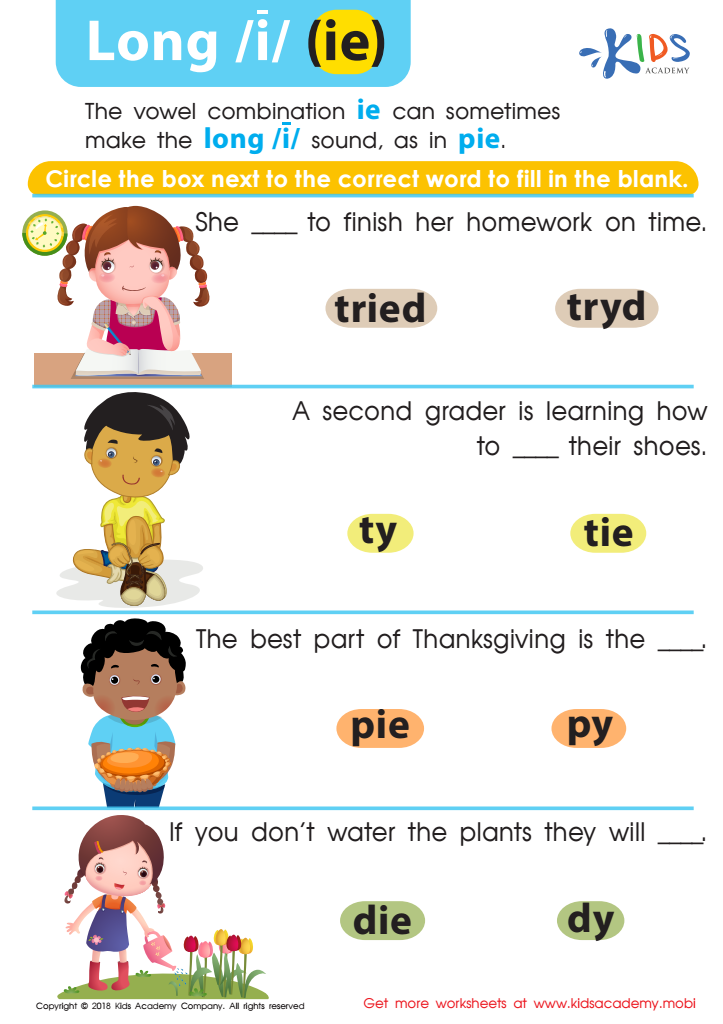

Reading: Long I and IE Worksheet
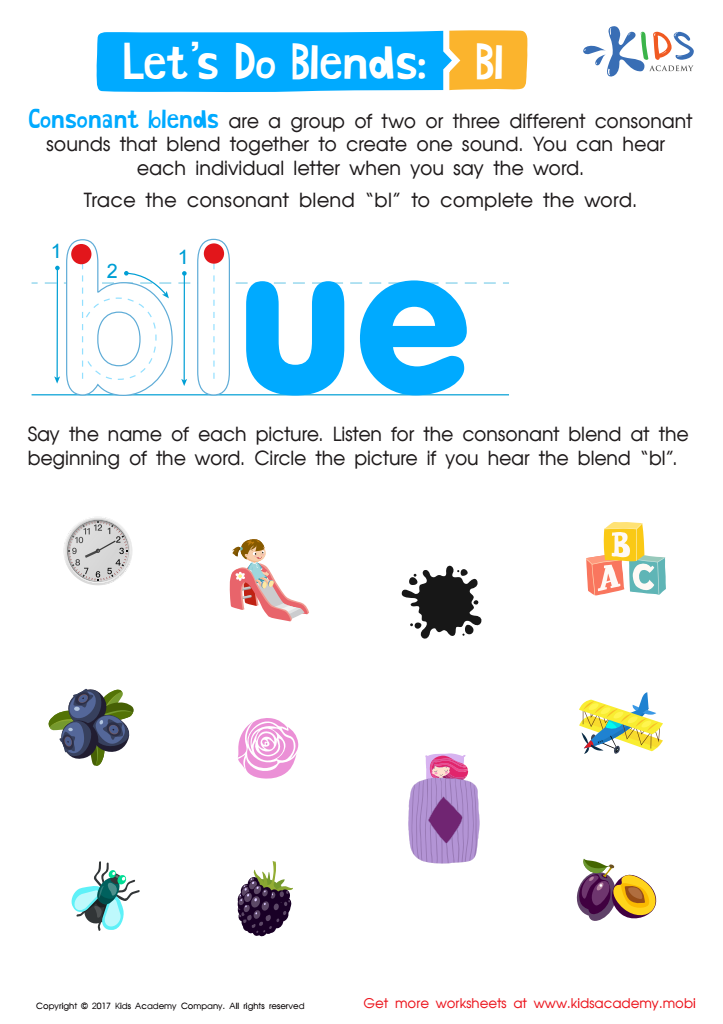

Beginning Blends: "Bl" Words Worksheet
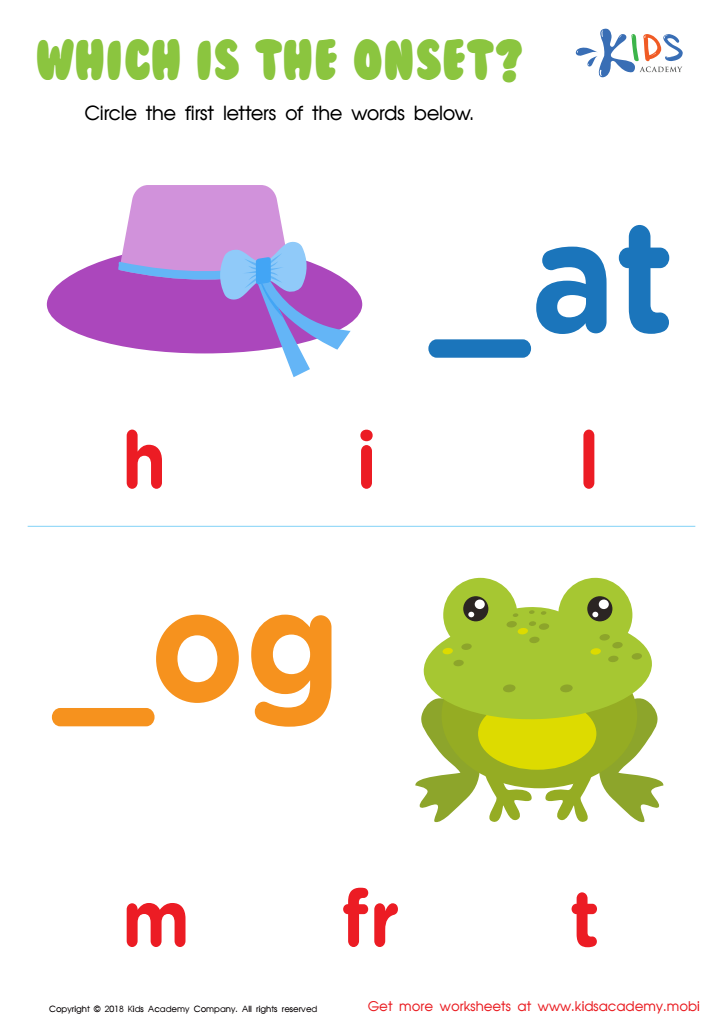

Which Is the Onset? Worksheet
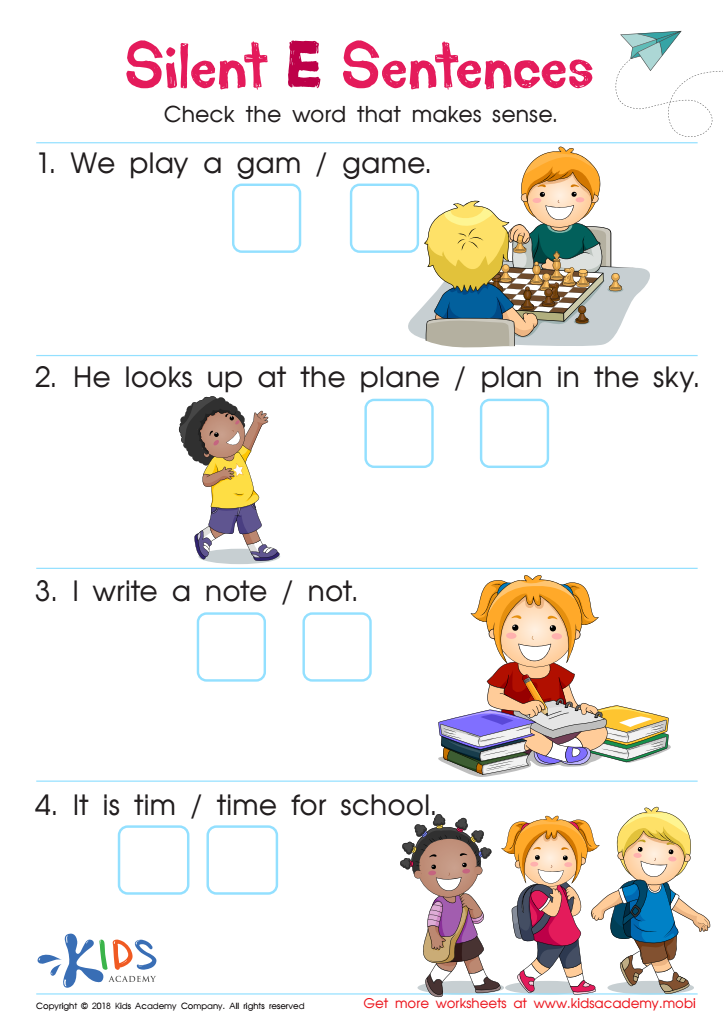

Silent E Sentences Worksheet


Long and Short U Worksheet
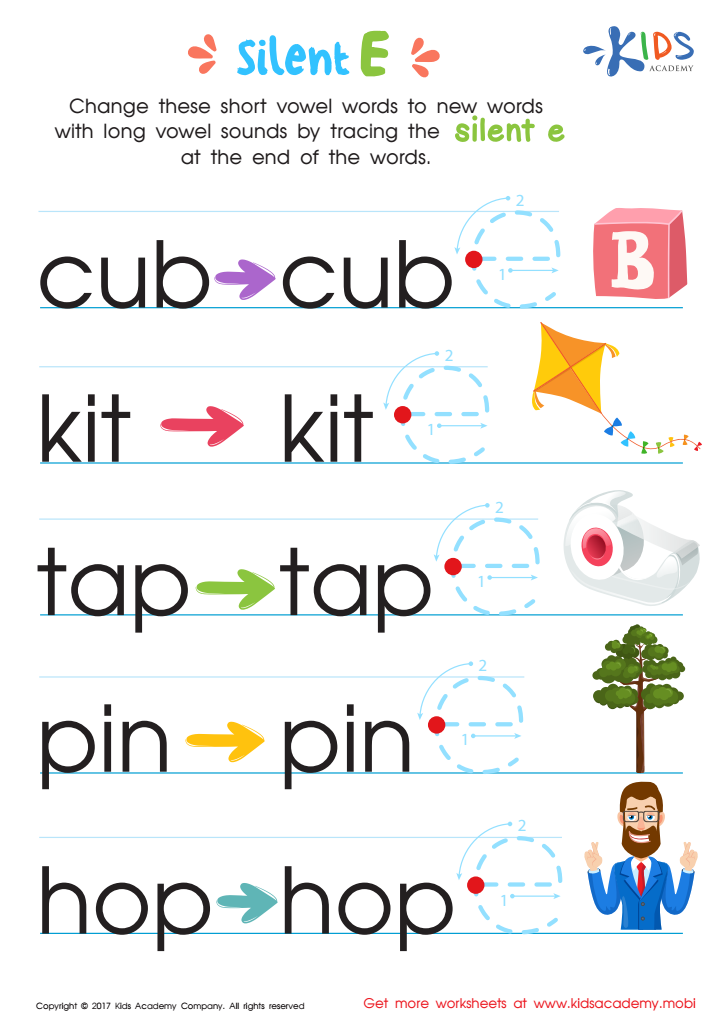

Silent E Words Worksheet
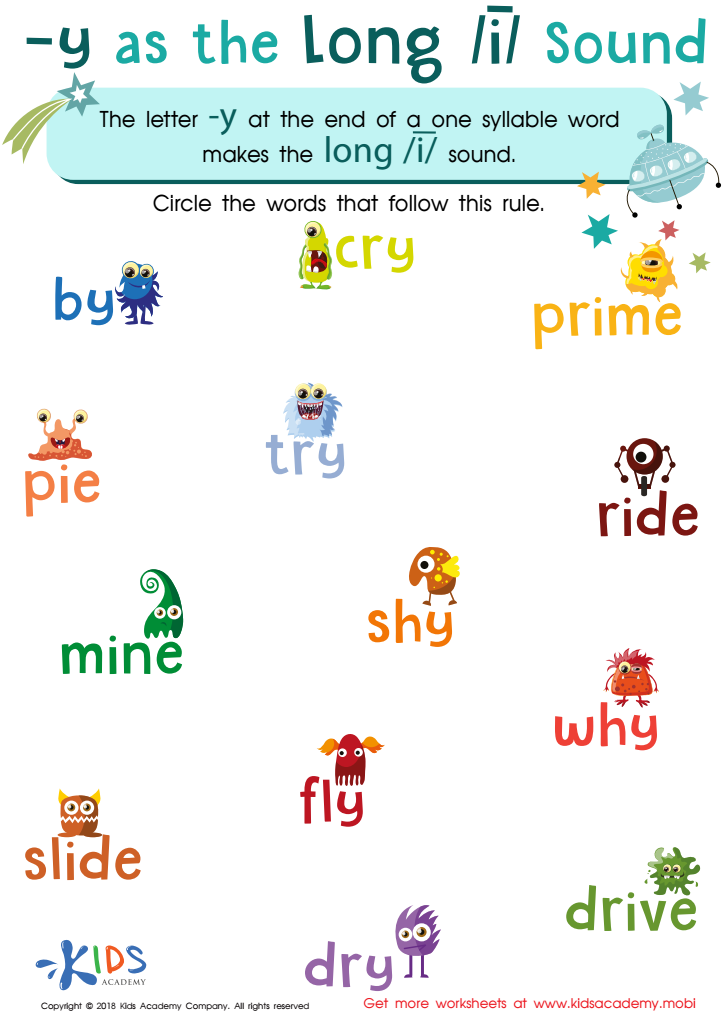

Reading: Y as Long I Worksheet
Phonics skills are essential for children aged 4-9 as they lay the foundation for reading and writing. Understanding phonics helps young learners decode words, recognize letter-sound relationships, and develop fluent reading skills. When children grasp these skills, they become more confident readers, which positively impacts their academic performance across all subjects.
Parents and teachers should care about phonics improvement because strong reading abilities enhance vocabulary development and comprehension skills, leading to better communication and critical thinking. Early phonics education can prevent reading difficulties later, reducing frustration and disengagement from learning. Moreover, children who struggle with reading are at a higher risk for long-term academic challenges, making early intervention crucial.
Engaging with phonics through enjoyable activities, games, and storytime encourages a love for reading, fostering a lifelong habit. By prioritizing phonics, parents and teachers can create a supportive learning environment that adapts to each child's needs, ensuring all children have the tools to succeed academically and socially. Ultimately, investing in phonics education not only equips children with fundamental literacy skills but also instills the confidence they need to express themselves and navigate the world effectively.

 Assign to My Students
Assign to My Students




















